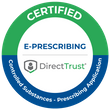Welcome to our resource page dedicated to Pediatric Pulmonology Services, a specialized field of medicine focused on the diagnosis and treatment of respiratory disorders in infants, children, and adolescents. In this guide, we will explore the essential role of pediatric pulmonologists and the comprehensive services they provide to support the respiratory health of our youngest patients.
What is Pediatric Pulmonology?
Pediatric Pulmonology is a subspecialty of medicine dedicated to the care of children with respiratory or lung-related conditions. Pediatric pulmonologists are medical doctors who undergo specialized training to diagnose and treat a wide range of respiratory disorders, from asthma and cystic fibrosis to more complex lung diseases.
Key Roles and Expertise of Pediatric Pulmonologists:
Diagnosis of Respiratory Conditions: Pediatric pulmonologists are experts in identifying and diagnosing respiratory disorders, including asthma, bronchitis, pneumonia, and chronic lung diseases.
Treatment and Management: They develop customized treatment plans, which may include medications, breathing therapies, and lifestyle recommendations, to manage and improve the respiratory health of children.
Asthma Management: Pediatric pulmonologists specialize in the evaluation and management of asthma, working closely with patients and families to achieve optimal control of symptoms.
Cystic Fibrosis Care: They provide comprehensive care for children with cystic fibrosis, including respiratory treatments, nutrition guidance, and genetic counseling.
Sleep-Related Breathing Disorders: Evaluation and management of conditions like sleep apnea and other breathing issues that affect sleep quality.
Comprehensive Pediatric Pulmonology Services:
Asthma Care: Assessment, diagnosis, and management of asthma, including education on asthma triggers and inhaler techniques.
Chronic Lung Disease Management: Care for children with chronic lung conditions, such as bronchopulmonary dysplasia (BPD) and interstitial lung disease.
Cystic Fibrosis Clinic: Specialized care for children with cystic fibrosis, including airway clearance techniques and genetic counseling.
Bronchoscopy: Diagnostic and therapeutic procedures involving the airways and lungs.
Flexible Bronchoscopies: Evaluation of airway and lung conditions through minimally invasive procedures.
Pulmonary Function Testing: Evaluation of lung function to assess breathing capacity and detect lung diseases.
Benefits of Pediatric Pulmonology Services:
- Early Diagnosis and Intervention: Timely diagnosis and treatment can lead to improved respiratory health and quality of life for children.
- Improved Lung Function: Proper management and care can enhance a child’s overall lung function and well-being.
- Education and Support: Pediatric pulmonologists offer guidance and support to families in managing respiratory conditions and understanding treatment plans.
- Comprehensive Care: They collaborate with other specialists to provide holistic and personalized care for complex cases.
Pediatric Pulmonology Services are dedicated to breathing life into young lungs, ensuring optimal respiratory health and well-being for children. Whether a child is struggling with asthma, cystic fibrosis, or other respiratory challenges, pediatric pulmonologists are committed to providing expert diagnosis, treatment, and ongoing support.
If you are a parent or caregiver with concerns about a child’s respiratory health, consulting with a specialized pediatric pulmonologist is the first step toward addressing those concerns and ensuring the best possible care for your child’s lungs.
